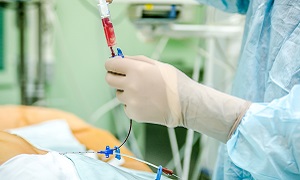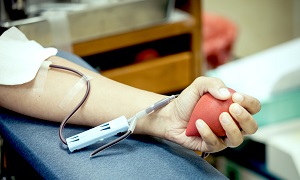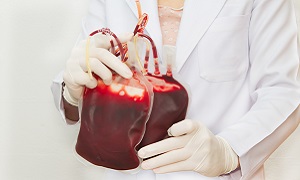Best Allogeneic BMT Doctors in India
Best Allogeneic BMT Hospitals in India
Hospital Highlights:
- Apollo Hospitals is a private healthcare group in India, with its headquarters based in Chennai. Established in 1983 by Dr. Prathap C. Reddy, the group offers a wide range of medical treatments and services across various specialties.
- It is renowned for emphasizing innovation and utilizing cutting-edge medical technologies into patient treatment.
- Known as India’s first corporate hospital, Apollo Hospitals is often credited for pioneering the private healthcare revolution in the country.
- With clinics and hospitals located all throughout India, Apollo Hospitals is a nationwide healthcare organization. Its presence can also be found in foreign countries.
- Preventive health examinations, medical and surgical treatment, and diagnostic centres are just a few of the services that the Apollo group provides.
- The group has several centres of expertise, including Cardiac Sciences, Neurosciences, Orthopedics, Emergency Care, Cancer Care, and Organ Transplantation.
- City: Chennai, India
Hospital Highlights:
- RIMC is a multi-specialty hospital in a sprawling area of 36 acres located in Chromepet, Chennai, Tamil Nadu, India.
- The facility has 450 beds including 130 critical care beds, 9 operating rooms, modern reference laboratories and radiology services, and is conveniently located near road, rail and air transportation.
- RIMC is led and managed by world-renowned physicians committed to healthcare.
- RIMC offers the broadest range of clinical care, education, and research. The hospital offers state-of-the-art technology and modern treatment facilities designed to provide health care at an affordable cost.
- Rela Institute is driven by patient needs, comfort and confidence.
- City: New Delhi, India
Hospital Highlights:
- Fortis Hospital in Shalimar Bagh is a multi-super specialty hospital that strives to provide world-class patient care by leaving no stone unturned.
- Fortis, Shalimar Bagh, with 262 beds and a 7.34-acre footprint, provides the best level of medical care through its team of doctors, nurses, technicians, and management professionals.
- City: Bengaluru, India
Hospital Highlights:
- Established in 2007, the Apollo Hospitals Bangalore is a 300-bed multispecialty hospital situated in Bannerghatta Road, Bangalore.
- Equipped with the state-of-the-art technology, it is a leading hospital dedicated to providing healthcare needs to patients with compassion and expertise.
- It is the first hospital to have completed the highest number of Robot Assisted Heart Surgeries in India.
- Over the years, it has successfully conducted some of the rarest medical procedures such as spinal angiolipoma excision, autologous chondrocyte implantations, and tibial tuberosity shift with MPSL reconstruction.
- The Apollo Hospitals Bangalore has the reputation of performing the greatest series of airway stents in the country.
- Additionally, the hospital is known for providing comprehensive treatment in specialties such as gastroenterology, urology, gynecology, oncology, colorectal surgery, etc.
- The “The Minimal Access Surgery Centre” (MASC), one of Apollo Hospitals, Bangalore’s premier Centres of Excellence, is devoted to the use of minimally invasive surgical procedures.
- In 2013, THE WEEK-A C Nielsen, Best Hospital Survey ranked Apollo Hospitals Bangalore as the 2nd best multi-speciality hospital in Bangalore.
- City: Mumbai, India
Hospital Highlights:
- Gleneagles Global Hospital The 450-bed facility comprises of 17-stories, housing state-of-the-art infrastructure, and advanced medical care facilities.
- The hospital offers end-to-end clinical, surgical, and diagnostic services. It is equipped with a team of eminent medical professionals aided by qualified nurses and medical staff
- The Hospital offers advanced Endoscopic procedures, Hepatobiliary and Liver Surgeries, Surgical and Medical Gastroenterology, Bariatric Surgery, and Robotic surgery.
- The hospital is a center of excellence for Orthopedics, Joint Replacement, Knee Replacement, and Hip Replacement surgery.
- City: Hyderabad, India
Hospital Highlights:
- CARE Hospitals were established in the year 2000, by CARE Group.
- The multispecialty hospital has 435 beds, including 120 critical care beds, with an annual inflow of 180000 outpatients and 16,000 in-patients.
- The hospital provides specialty medical services in Cardiology, Cardiothoracic Surgery, Pediatric Cardiology, Pediatric Cardiothoracic Surgery, Neurology, Neurosurgery, Nephrology, and Urology.
- The hospital has the first dual source, 128 slice CT scanner (for high precision cardiac imaging) – the first of its kind in south India.
- The hospital offers a wide range of accommodation facilities for the convenience of its varied patient base, ranging from general wards to super deluxe rooms.
- City: Mumbai, India
Hospital Highlights:
- Fortis Hospital in Mulund is a 315-bed multi-speciality tertiary care hospital with five JCI accreditations that offers a wide variety of diagnostic and treatment services. The Fortis Hospital in Mulund delivers patient-centred treatment with cutting-edge technology, highly skilled and experienced surgeons, and paramedical staff.
- This institution houses Maharashtra’s largest multi-organ transplant centre. It is also the first heart transplant centre in western India to conduct 100 or more consecutive heart transplants in under four years. It is the only hospital in the city to have multi-organ transplants and has handled the youngest patient for angioplasty. Fortis Hospital Mulund now boasts the first advanced surgical robot in central Mumbai.
- Cardiology and heart surgery, urology, nephrology, neurosciences, orthopaedics, digestive care, emergency and critical care, and maternity care are among the services provided by the hospital.
- City: New Delhi, India
Hospital Highlights:
- Manipal Hospitals, Dwarka, is a super-specialty hospital in Dwarka, New Delhi, which is a part of Manipal Hospitals Group.
- The hospital aims to provide the best treatment on par with international standards at a fraction of the cost.
- Equipped with 380 beds, the hospital is also one of the new age hospitals which are equipped fully with state-of-the-art infrastructure, cutting-edge technology as well as the latest and advanced clinical practices. The hospital also has 13 modular Operation theatres with 118 beds which are solely meant for critical care.
- The hospital comprises internationally acclaimed doctors and highly professional and experienced hospital and medical staff who are able to provide preventive, therapeutic, and diagnostic services all under one roof.
- City: Chennai, India
Hospital Highlights:
- Located in Chennai, India, MGM Healthcare is a top multispecialty hospital that provides all medical services under one roof.
- Since its founding in 2019, MGM Healthcare has quickly become a leading national referral centre, creating several innovative flagship initiatives.
- MGM Healthcare combines next-generation medical and digital technologies to provide better patient results.
- With 12 centres of excellence, more than 400 inpatient beds, 100 intensive care unit beds, and 24/7 emergency care, MGM Healthcare leaves no chance in redefining the patient experience in Chennai.
- MGM Healthcare boasts 250+ expert doctors across 30+ departments, including Cardiology, Pulmonology, Neurology, Obstetrics & Gynaecology, and more.
- They house 12 specialized Centres of Excellence, including Neurosciences, Orthopaedics, and Multi-Organ Transplantation.
- Their team of doctors, nurses, and paramedics works together to give every patient individualized treatment.
Hospital Highlights:
- Lilavati Hospital & Research Centre is India’s premier multi-speciality tertiary care hospital and has been recognised as a global medical excellence centre.
- Lilavati Hospital & Research Centre has built an unrivalled level of trust with its patients over the years, thanks to a solid foundation that comprises cutting-edge facilities, the best medical competence, research, education, and charity endeavours.
- The hospital is quite proud of the fact that it now serves patients from all kinds of backgrounds, not just from the United States but from all around the world.
- The hospital has a total of 323 beds, one of the largest Intensive Care Units (ICUs), 12 Operation Theatres with modern amenities, over 300 consultants, and almost 1,800 personnel.
What is Allogeneic Bone Marrow Transplant?
An Allogeneic Bone Marrow Transplant (or Stem Cell Transplant) is a type of Bone Marrow Transplant where you receive healthy bone marrow from a matching donor to replace your diseased or damaged bone marrow.
When is Allogeneic BMT recommended?
Allogenic Bone Marrow Transplant is generally recommended for patients who are undergoing treatment for multiple or serious cancer or non-cancerous conditions. The doctors based on your clinical examinations will help you determine whether the allogenic transplant procedure is a perfect fit for your condition or not. Nevertheless, here is a list of the possible diseases that might need allogenic bone marrow transplant to cure:
- Chronic or acute leukemia
- Aplastic anemia
- Hodgkin’s/ Non-Hodgkin’s lymphoma
- Neuroblastoma
- Plasma cell disorders
- Multiple Myeloma
- POEMS Syndrome
- Myelodysplastic syndrome
- Immune deficiency
- Inborn metabolism disorder
Common diagnostic tests for Allogenic Bone Marrow Transplant
Some common diagnostic tests recommended to determine the need or course of your allogenic bone marrow transplant are- blood tests, X-Ray, bone marrow biopsy, pulmonary lung tests, PET scan and most importantly, Tissue Typing.
Donor matching
Unlike autologous transplant, the success of an allogenic bone marrow transplant heavily depends on how successful the donor match is. Often, the donor is someone related to you such as sibling, parents or any close relative. However, in some cases, donor registries are used to find the closest match. This brings us to Tissue Typing, a clinical test opted by both the donor and the patient in which proteins called HLA or Human Leukocyte Antigens found in tissues and white blood cells are extracted and tested to determine if the donor’s HLA and the recipient’s HLA matches or not.
The process includes extracting blood from both the donor and the patient and then tissue typing the blood samples to find the right match
The usual donor types include:
- HLA matched relative
- HLA mismatched relative
- HLA matched non-relative (donor unrelated)
- Unrelated umbilical cord match
Stem Cell Extraction:
Once the doctors are able to determine the perfect donor match for you, the stem cell extraction process is started to filter out the healthy stem cells from the donor’s blood. There are primarily two methods used by doctors to extract the stem cells from the donor’ body. The hematology team will decide the best method applicable for you.
The PBSC Donation
In this method, the donor will be injected with Filgrastim, a medication that boosts the stem cell count in the donor’s bloodstream. Based on favorable conditions, the stem cell extraction process starts after a few days where thin tubes inserted into the donor’s arms is connected to a machine. Blood extracted from the body passes through the machine that filters out the stem cells as the rest of the blood is returned back through the other arm. The stem cells are then frozen for the transplant day. The donor will be awake throughout the procedure.
The Bone Marrow Donation
Allogenic Bone Marrow Transplant preparation
The preparation method consists of a procedure called the Conditioning or a preparative regimen where the patient has to undergo chemo or radiation therapy to destroy the damaged or infected stem cells that are crowding inside. The process usually takes place a few days before the actual transplantation process and might come with a few common symptoms. The procedure based on the patient’s condition may have to repeated more than once or twice to ensure all the diseased stem cells are completely cleared out of the system before the actual transplantation process starts.
This procedure is also important to suppress the patient’s immune system to avoid it from reacting to the new stem cells that’ll be introduced during the transplant process. The conditioning reduces the risks of a transplant failure due to the body’s proactive immune system.
The Procedure- Day Zero!

On the day of the transplant procedure, also known as Day Zero, the patient undergoes the transfusion through a thin tube called the Central Line injected into the chest area of the patient. The stem cells introduced will make it to the bone marrow and fill up the gap left by the diseases stem cells and over 10 to 28 days the effects of the new stem cells will start showing as they start to repopulate the area
What to expect after Allogenic Transplant?
The stem cells refrigerated after the conditioning process is often coated with a preservative which may or may not cause certain symptoms post the transplant procedure. These symptoms can be in the form of-
- Chest pain
- Fever
- Chills
- Nausea and Vomiting
- Headache
- Diarrhea
- Shortness of breath
- Fatigue
- Bleeding disorders
- Mouth ulcers
Possible complications
Due to the reduced immune system, patients may experience low blood count which in turn makes them vulnerable to certain infections. Patient’s may have to undergo blood transfusions if their haemoglobin level falls or antibiotics and medicines to flush out the preservatives from the system and to protect the body from being exposed to infections.
Another possible complication can be the GVHD or the graft-versus-host disease where the immune system of the patient recognizes the newly introduced donor cells as foreign and harmful and might attack it. The intensity of this complication varies from patient to patient and medical drugs and constant monitoring are prescribed to tackle this situation
Recovery & care after Allogenic Bone Marrow Transplant
You’ll be asked to stay back in the hospital for a few days to monitor your recovery during which the medical team will help you out with the required medicine doses and diet chart. However, once you are released, the care and recovery are completely dependant on the patient. Please keep these pointers in mind:
Maintain a strict diet. Ask your doctor or medical team for a dietary chart and abide by it strictly to improve your recovery rate.
- Ask your doctor about vaccinations necessary to help you improve your immune system.
- Always take your medicine doses on time and don’t make any changes in your everyday medical routine unless advised otherwise by the doctor.
- Avoid weight gain at all cost.
- Avoid strenuous physical activities but make sure you exercise to keep yourself from unwanted weight gain.
FAQs
What is the usual hospital stay for an allogenic transplant?
Hospital stays depend on the patient’s recovery rate. However, a minimum 2-4 week is given to monitor the condition and patients might be asked to stay back or visit for routine follow-ups to consistently monitor their recovery.
What is the success rate for allogenic transplant?
Usually, allogenic transplant success rates heavily depend on how close a match the donor is. With the right donor, the success rates can be as high as 60-80%
What are the chances of my family members being my donors?
Almost 7 out of 10 cases noted that family members weren’t a close match. The match works only 1 out of 4 times for brothers or sisters. This is why the bone marrow registry is also consulted and 1 out of 430 matches are selected to be the perfect match
Will donating bone marrow affect me in any way?
Usually, only 4-6% of the donor’s bone marrow is extracted and the bone marrow regenerates itself within 4-6 weeks. Donating bone marrow will not affect donors permanently.
Are there any symptoms or risks to donating bone marrow?
Risks are rare and affect only 1% of bone marrow donors seriously. However, donors may feel certain side effects in terms of headache, muscle pain, nausea, or common flu symptoms. However, if any symptoms persist for more than a week, contact the medical team immediately.
What happens if my transplant fails?
Even though it’s rare, a failed transplant is possible. However, in that case, doctors usually recommend a second transplant.
What happens if my cancer comes back?
The sole purpose of the medical procedure is to kill or prolong the diseased cells affecting you. Even though the success rate is high, some patients have experienced a relapse. However, this is rare and in such cases a second transplant is advised by the doctors.













